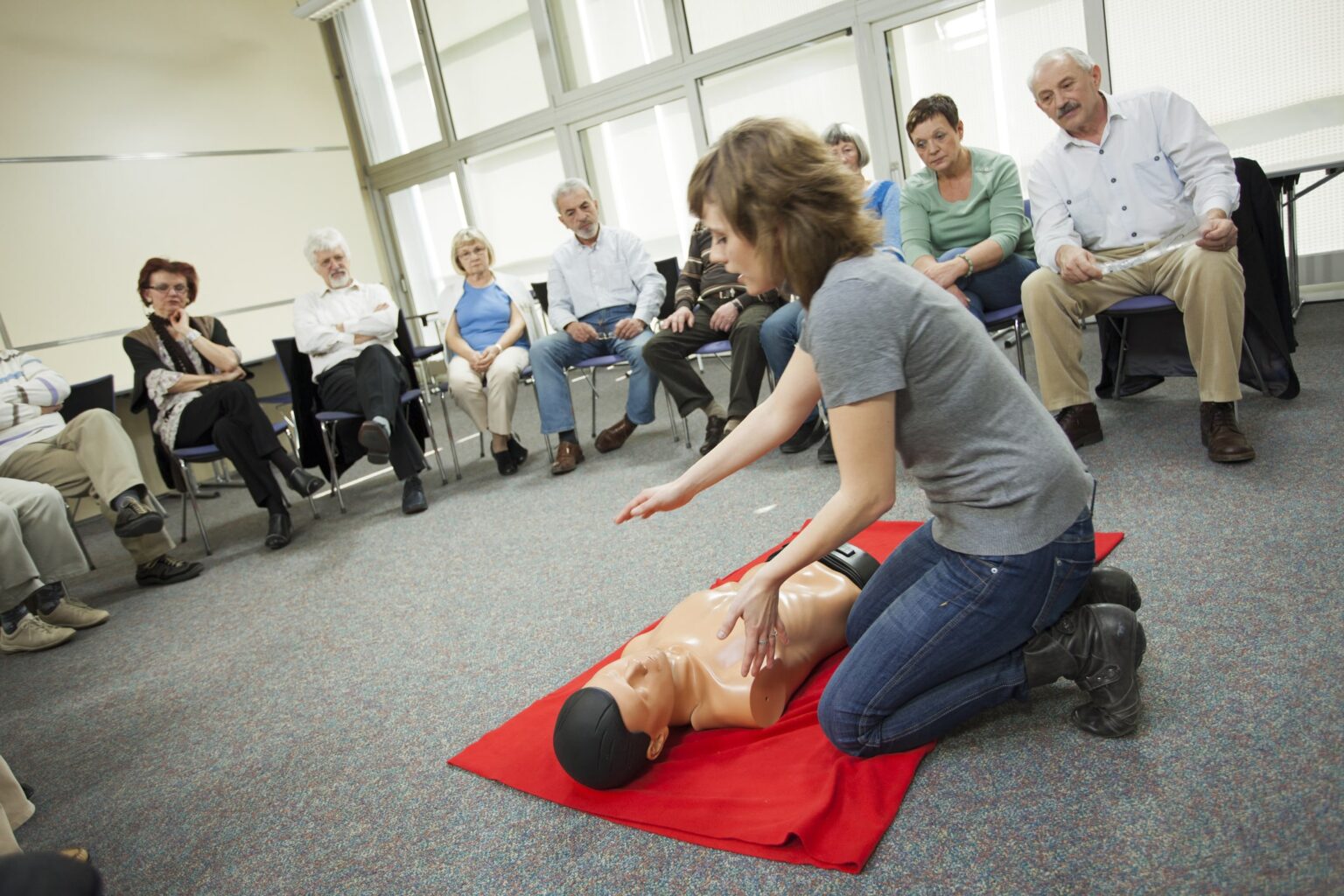
Safety Training Seminars can come to your workplace on any day of the week to run BLS, CPR, and First-Aid courses. Our instructors will show up on time with all the equipment needed for an engaging and informative class.
Prefer an off-site option? Your team can attend training at one of our 65 offices across Northern California—convenient and hassle-free.
Pro Tip: Don’t forget to ask us about Promo Code discounts!
Cardiopulmonary resuscitation (CPR) is a critical life-saving skill that can be the difference between life and death in a cardiac emergency. In San Francisco, California, group CPR training classes offer individuals the opportunity to learn this essential skill in a supportive and interactive environment. This article explores the importance of CPR training, the benefits of group classes, and the impact they have on community health and safety in San Francisco.
Cardiac arrest can happen to anyone, at any time, and often occurs outside of a hospital setting. In such emergencies, immediate CPR can double or triple the chances of survival. CPR is a simple yet powerful technique that involves chest compressions and rescue breaths to keep blood and oxygen circulating in the body until professional help arrives.
By learning CPR, individuals become empowered to act quickly and confidently in an emergency, potentially saving the life of a loved one, friend, or stranger. CPR training also increases awareness of heart health and encourages individuals to adopt healthy lifestyle choices to prevent cardiovascular diseases.
Group CPR training classes offer several advantages over individual training sessions. One of the key benefits is the opportunity for participants to practice CPR skills in a group setting, simulating real-life scenarios. This hands-on experience helps build confidence and prepares individuals to respond effectively in an emergency.
Group classes also promote teamwork and collaboration, as participants learn to work together to perform CPR and use automated external defibrillators (AEDs). Additionally, group training provides a supportive environment where participants can ask questions, share experiences, and learn from each other’s perspectives.
Group CPR training classes have a positive impact on community health and safety in San Francisco. By increasing the number of individuals trained in CPR, these classes create a more resilient community capable of responding to cardiac emergencies. This broader coverage increases the likelihood that someone trained in CPR will be nearby when an emergency occurs.
Furthermore, group CPR training classes help raise awareness about the importance of CPR and cardiovascular health in the community. As more people become trained and knowledgeable about CPR, they are more likely to take proactive steps to improve their heart health and reduce their risk of cardiovascular diseases.
In conclusion, group CPR training classes play a crucial role in empowering individuals and communities in San Francisco to respond effectively to cardiac emergencies. By providing hands-on training, fostering teamwork, and raising awareness about CPR and heart health, these classes contribute to a safer and healthier community. Through education, collaboration, and a commitment to saving lives, group CPR training classes are making a meaningful difference in the lives of San Francisco residents.
Who should attend group CPR training classes in San Francisco?
Group CPR training classes are suitable for anyone interested in learning life-saving skills, including parents, teachers, caregivers, healthcare professionals, and members of the general public.
How long do group CPR training classes typically last?
Group CPR training classes usually span a few hours, depending on the training provider and the depth of instruction. Classes typically include a combination of theoretical instruction, hands-on practice, and skill demonstrations.
Is there a renewal requirement for group CPR training certification?
Yes, CPR certifications are typically valid for two years, after which individuals are required to undergo renewal courses to maintain their certification. Renewal courses often include updates on guidelines and protocols, as well as opportunities to refresh and practice essential skills. Renewing CPR certification ensures that individuals stay current with the latest best practices in CPR and are prepared to respond confidently to emergencies.
Safety Training Seminars CPR
2000 Van Ness Avenue, Suite 303, San Francisco, CA 94109
(415) 761-1988